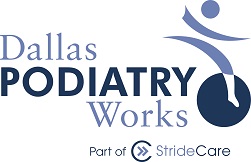Early Foot Correction Gets Little Ones Straightened Out
Deformities that are apparent at birth require early intervention to obtain the best results. One of the most common deformities is also referred to as clubfoot, when the foot points down and inward. Why babies are born with this deformity is unknown, but the foot is forced out of normal position because of shortened tendons on the inside and back of the foot. Club foot can vary in degrees of severity and it may affect one or both feet. Normally this deformity does not become problematic until your child begins to walk. If it has not been corrected it may cause your child to walk abnormally on the outside of their foot, which could cause large sores and infections. This condition is not painful, but if it is not resolved it affects the child’s ability to walk normally and participate in normal activities and may also negatively impact social interactions.
Your doctor will notice a club foot deformity soon after birth and can advise you on appropriate treatment. The Ponseti method is currently the most common method of treating clubfoot deformity and its success depends on it beginning shortly after birth. The foot is stretched, turned and then casted. This process occurs weekly, correcting the foot slowly by degrees, until a desired position is achieved. This process is called serial casting. This method is successful in about fifty percent of the cases. In more severe cases, surgery may be required. The doctor will surgically loosen the tendons to allow the foot to assume a more natural position. Then a cast is placed on the foot. After the cast is removed, the child wears a nighttime brace until approximately age two.
Intoeing is another condition that is seen in children. This can come from any poor position of one or more of the following: hip, thigh, knee, leg, ankle or foot. The origin of this condition can determine whether it needs to be treated, or whether it is likely it will be outgrown. A comprehensive examination is the only way to determine which segment the intoeing is coming from, and what, if anything needs to be done.
Make an appointment with the experienced foot and ankle surgeons at Dallas Podiatry Works, Drs. Joel Brook, Arroyo, and McClurkin to evaluate this condition.
If you have a child that shows signs of clubfoot, in-toeing or any other abnormality of the feet or ankles, do not hesitate to call Drs. Joel Brook, Arroyo, and McClurkin at 972.853.7100 in Dallas, or (972) 943-3323 in Baylor/Plano for expert individualized care. With state-of-the-art technology Dallas Podiatry Works is able to diagnose and treat patients of all ages and is a safe, caring environment for your child.




